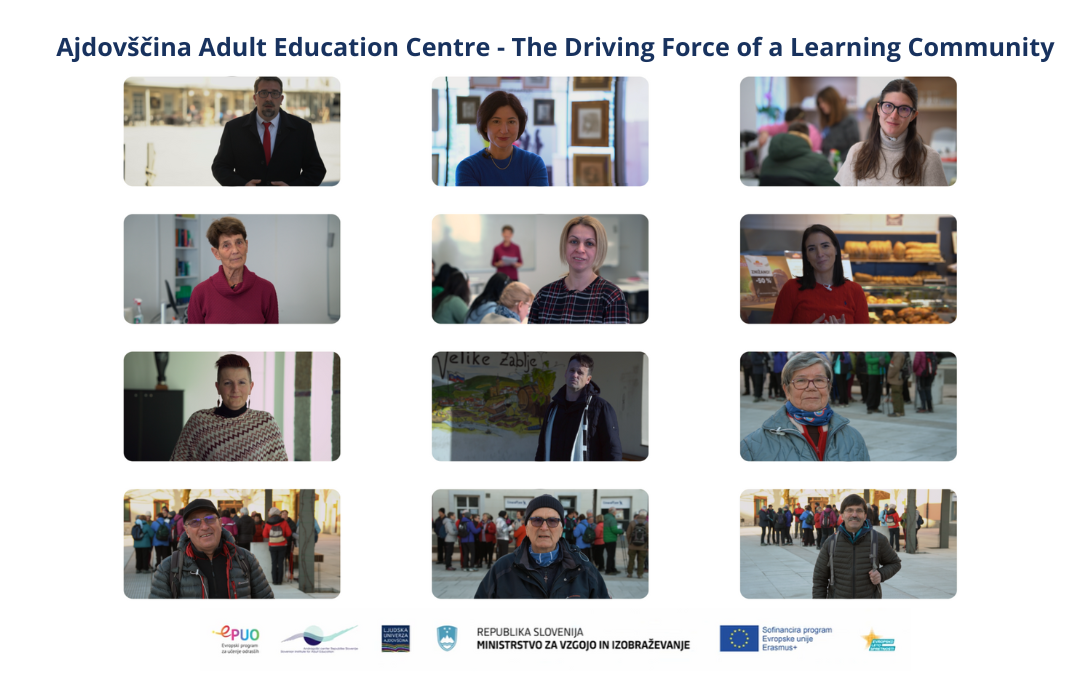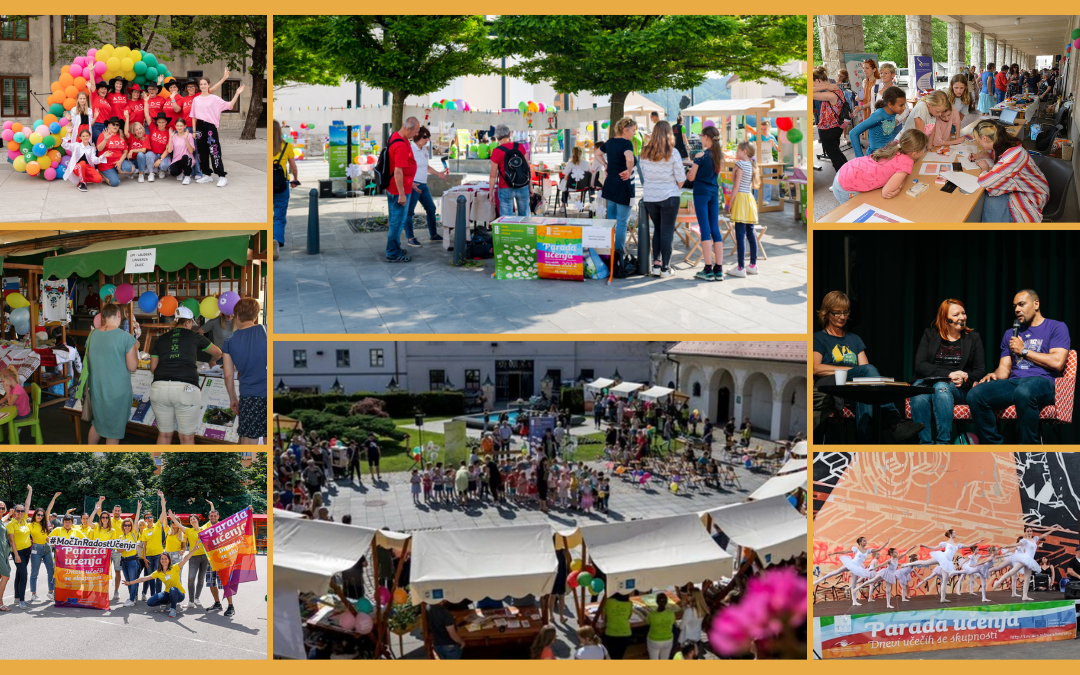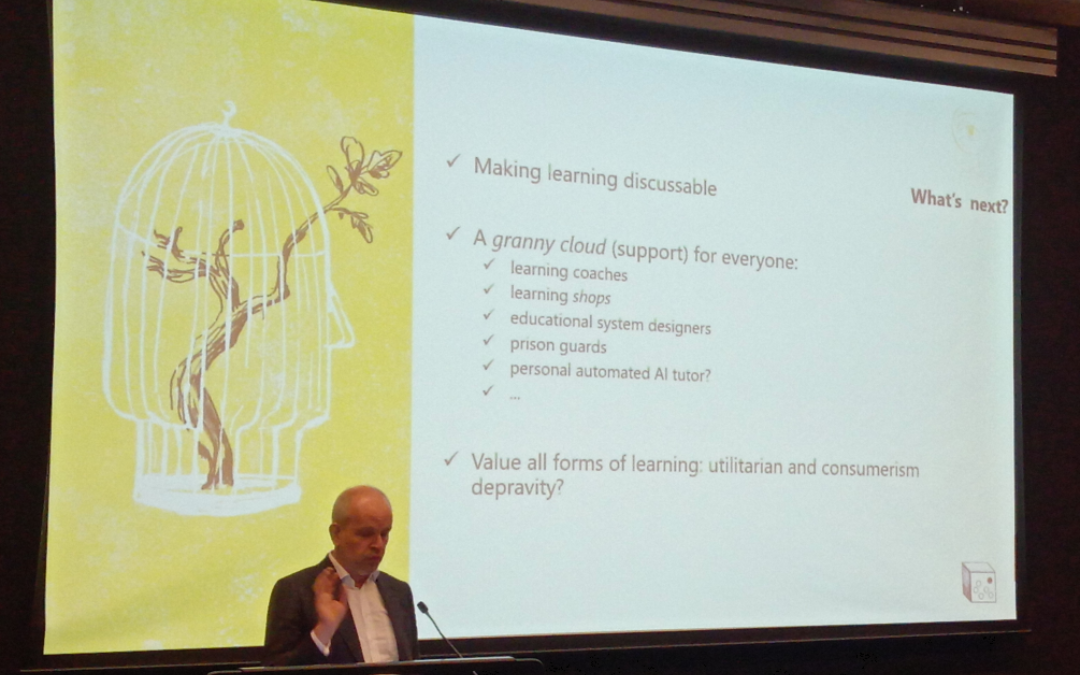The so-called EAAL project is comprised of activities and achievements that have mainly derived from existing approaches in adult learning and have led to upgraded or new concepts. An example stemming from traditional awareness-raising activities embodied in the annual LLW has been the Learning Parade – Day of Learning Communities. Introduced in 2013, it reached its 10th implementation in a row and has become an indispensable yearly celebration of learning opportunities in about 15 cities country-wide.
Alongside the early stage of this development, efforts were dedicated to exploring the phenomenon of learning communities and delineating their definition.
An attempt to define learning communities
A learning community consists of people linked to each other for a relatively long time. Their personal contacts have led to the development of unique mutual relations in which members influence the decisions and rules of how this community functions.
Through learning involving informal, non-formal and formal approaches (e.g. when socialising, or in study circles, adult learning programmes or school), the community finds self-fulfilment and preserves its common identity across generations. The community identity includes:
- the community’s past (e.g. historical memory) and its orientation to the future (shared vision);
- the economic aspect (economy of functioning) and the non-economic aspect (solidarity, volunteering, community symbols).
These aspects must be balanced among each other, since only in this way can the responsibility of members to the community and resources for its survival and prosperity be fulfilled.
This definition resulted from an analysis of literature, research of good Slovenian practice as well as fieldwork conducted in 2013 and 2014 by Dr Nevenka Bogataj and Mateja Pečar, both of the SIAE. They also concluded that learning communities are dynamic structures whose contexts may differ significantly.
Nearly a decade later, we decided to engage in the topic of learning communities again, this time through the concrete example of the local community of Ajdovščina and its surrounding area. Through testimonies of selected community representatives, we attempted to show that learning was the nurturing process and the Ajdovščina AEC is the driving force of this learning community.
For the community of around 20,000 residents, adult education is one of the essential pillars for establishing new and innovative pilot programmes. In his testimony, mayor Tadej Beočanin claims: ‘Our common desire is to respond to the challenges of all residents and, of course, the economy. Therefore, we have established many good practices and new projects in cooperation with the Ajdovščina AEC.’
Eva Mermolja, the AEC’s director, takes pride in their Development Plan until 2025. By following its vision, fulfilling the mission and embodying its values, the AEC team contributes significantly to the development of three key aspects: the individual, the economy and the community. ‘With the range of programmes we offer, we respond to very different needs of the local environment and individual target groups,’ she claims.
For example, through the Project Learning for Young Adults programme, they cater for the needs of young people who are neither in school nor in employment. They offer Slovenian language learning to migrant women and teach them how to use it in everyday life, especially to support their families.
With the programme ‘For You’, they approach individual local communities with learning opportunities specially designed for them and prepared together with them. This way, they liven up the smaller towns and villages in Ajdovščina’s surroundings. Thus, they activate people in these communities so that they are more connected, and there is more trust and cooperation among them.
They also work closely with enterprises. Ana Furlani of Mlinotest, one of the major food processing companies in the country, explains: ‘Our collaboration with Ajdovščina AEC began many years ago. We strengthened our mutual connections, especially in areas such as mentoring programmes, foreign language courses for our co-workers, particularly those who come from abroad, as well as various digital skills courses.’
For five years already, InCastra – Day of Industry and Entrepreneurship Ajdovščina has been one of AEC’s projects as well. Last year they co-created this two-day event together with more than fifty companies and partner organisations in the area – among them also the famous light aircraft manufacturer Pipistrel. InCastra is an opportunity for companies to open their doors widely and present their activities, job and career development opportunities while young people get to know occupations.
Last but not least, there is the highly successful programme called ‘Active Village Socialising’. It has been carried out for seven years now and involves more than 60 participants. The group meets once a week at a predetermined location, and they go on a hike. ‘It would be difficult to say that these are just hikes; it’s an activity, socialising, and at the same time, education. And what matters most to me is that we combine care for intellectual growth with care for physical activity or physical fitness. And that’s all in one package at these gatherings,’ says Cvetko Ušaj, one of the participants.
The Ajdovščina learning community is caring and supportive
The video titled ‘Adult Education Centre Ajdovščina – The Driving Force of the Learning Community’, comprising of the above and many more aspects was shown for the first time at the meeting of EAAL national coordinators and the PLA on learning communities and innovative learning spaces in Leuven, Belgium, on 14 and 15 March 2023.
Prior to that, Dr Pieter Sprangers, renowned educational designer and visionary, shared with us his presentation titled ‘Ode to Stunning Learning for All’ and emphasised the importance of a caring learning environment. With reference to Sugata Mitra, an Indian computer scientist and educational theorist, he introduced us to the so-called ‘granny cloud’.
We dare to claim that in Ajdovščina, people certainly care, stimulate, support, appraise, etc., each other. The ‘granny cloud’ – thanks to the Ajdovščina AEC team – is there.
In addition to the above video, it is possible to experience the Ajdovščina learning community in person at two upcoming LLW events. On 12 May, the National opening of the LLW 2023 will take place in Ajdovščina. Furthermore, on 24 May, the Learning Parade – a day of these outstanding learning communities will bring together all generations from different walks of life to celebrate the power and joy of learning.
Zvonka Pangerc Pahernik, MSc (zvonka.pangerc@acs.si), SIAE





